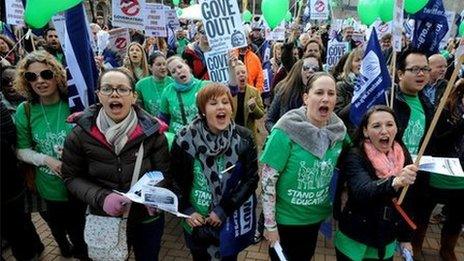Government 'not budging' on public sector pay and pensions
- Published
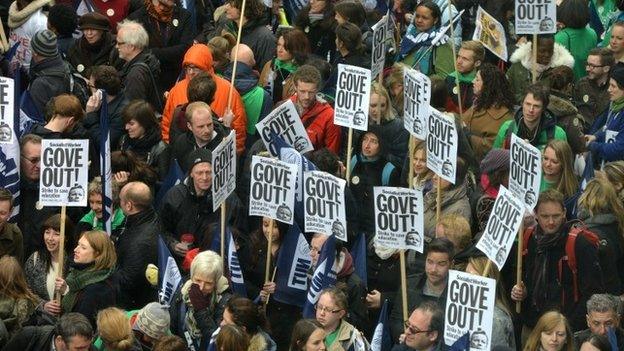
Teachers last went on strike in March
The government is "not budging" on its changes to pay and pensions for public sector workers, Cabinet Office Minister Francis Maude has said.
Mr Maude told Sky News it would be "totally irresponsible" to reverse changes that made pay and pensions "affordable and sustainable".
More than a million public sector workers are expected to take part in a strike on Thursday.
They include council staff, teachers, firefighters and civil servants.
Mr Maude criticised unions for holding strikes based on ballots with low turnout, claiming that one persuaded just 20% of its eligible members to vote.
He said the National Union of Teachers (NUT) was striking on the basis of a ballot held nearly two years ago and it showed a "great lack of self-confidence" that a new ballot was not being held.
'Not listening'
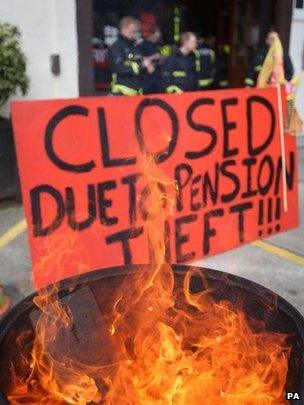
Firefighters object to changes to their pensions
The NUT says its summer 2012 ballot remains in force and allows it to take further strike action.
It says its members overwhelmingly supported the call for joint action on pay and working conditions.
The latest proposed strike follows two years of pay freezes for teachers, a 1% pay cap in 2013 and a 1% pay rise announced for this year.
The NUT says this pay restraint combined with increased pension contributions means the real value of teachers' take-home pay will have fallen by 15% over the life of the coalition government.
Thursday's planned strike brings together union members involved in a range of disputes with the government on pay and other issues.
Those expected to take part include:
Firefighters involved in a row over pensions and retirement age
Civil servants, including Passport Office, job centre and courts staff, who have rejected a pay rise capped at 1%
Council and school support workers who have dismissed a pay offer worth 1% to most
Teachers who say they are "under attack, external" from the government on pay, pensions, workload pressure and conditions.
The general secretary of umbrella union organisation the TUC told the BBC's Sunday Politics it "seems like the government isn't listening" to ordinary people.
Frances O'Grady said it "really sticks in the throat" that the government could offer tax cuts for millionaires but not find more money for dinner ladies.
The Cabinet Office has said public sector pay restraint protects jobs, supports public services and is necessary to help restore the national finances.
Last month, the Cabinet Office said, external the government had made savings of £1.1bn by restricting wage inflation in 2013/14 and further savings from reforming civil service pensions.
- Published4 July 2014

- Published2 July 2014

- Published1 July 2014
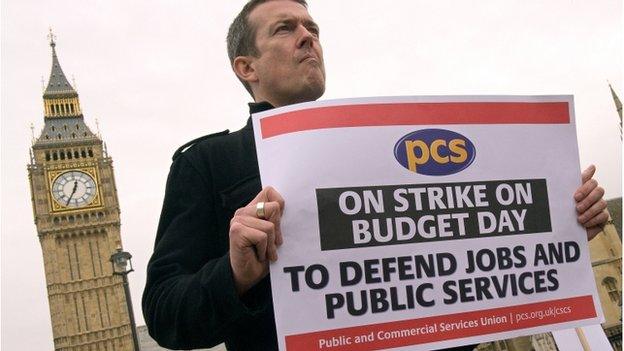
- Published27 June 2014
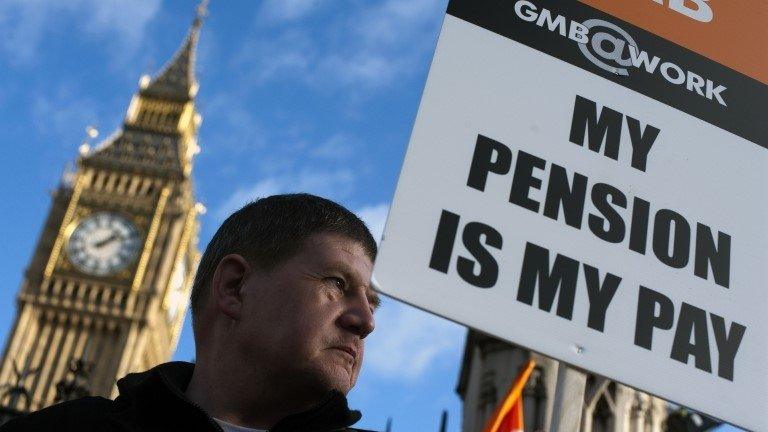
- Published23 June 2014
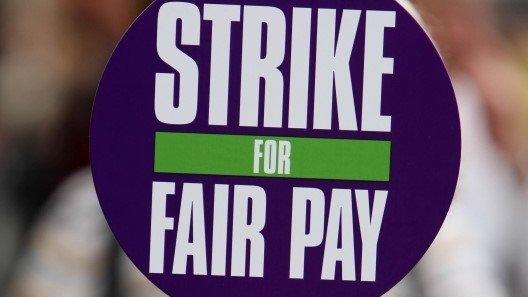
- Published19 June 2014
